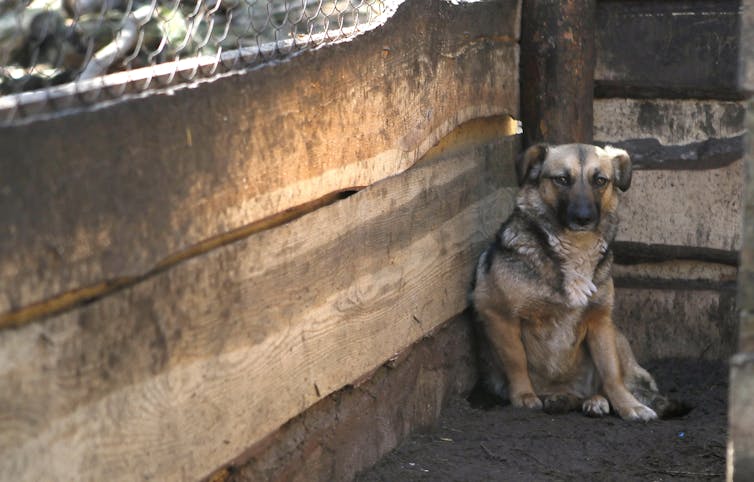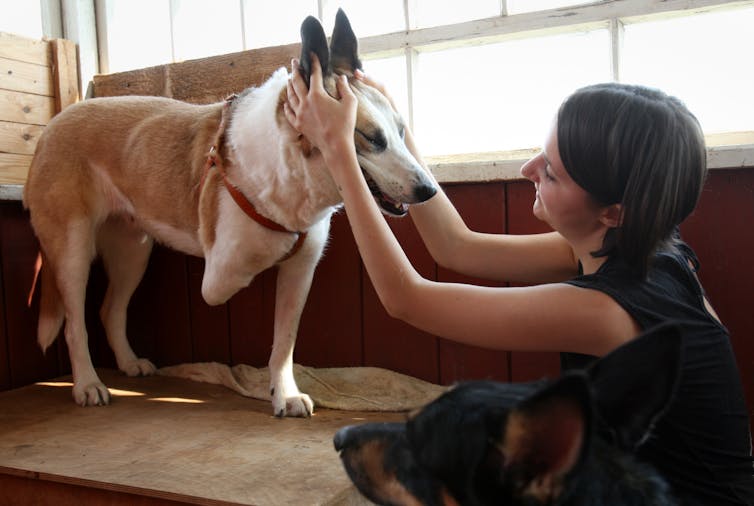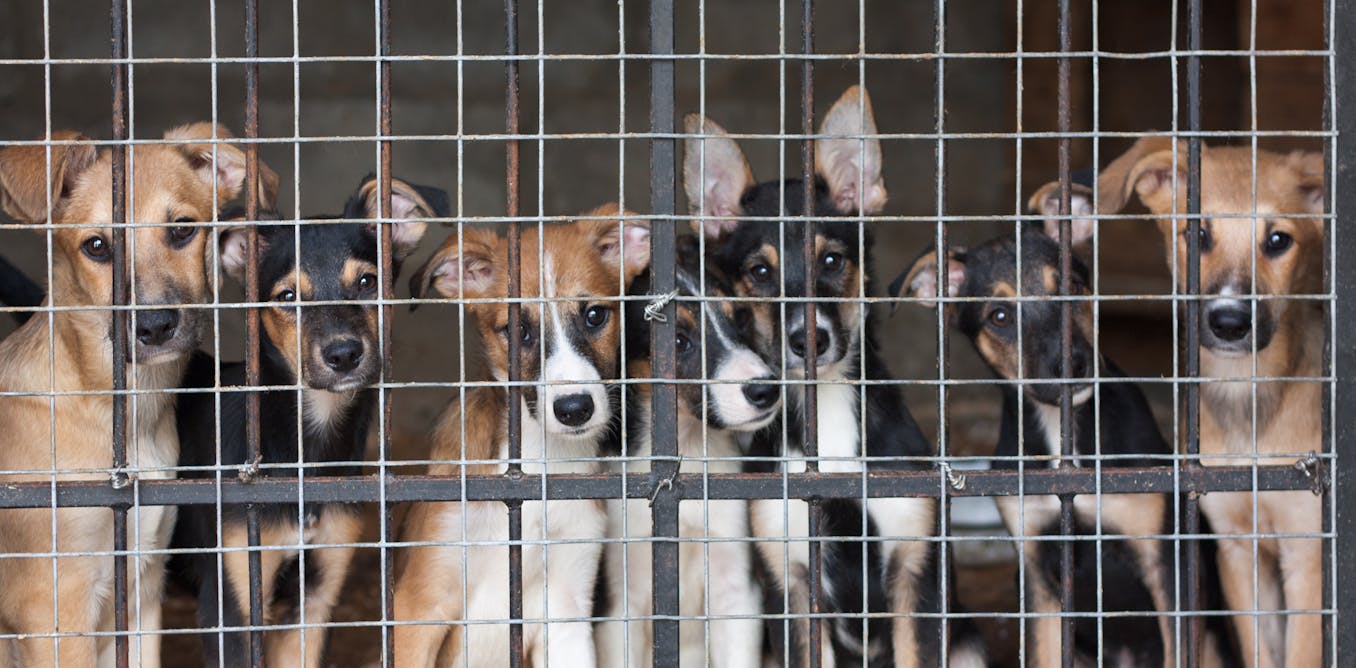[ad_1]
For the final 4 years, Britain has been experiencing an inflow of immigrants that has gone largely unnoticed. Social media and a change within the regulation are serving to drive a rising development for canines being dropped at the UK from mainland Europe for rehoming. However whereas these canines are definitely in want of assist, they create with them the potential for brand spanking new ailments and elevated housing pressures for these already within the nation.
After the necessity for quarantine was eliminated in 2000, bringing a single canine from mainland Europe required a six-month screening course of that resulted in a blood check. However in 2012, the UK’s laws had been introduced in keeping with the remainder of Europe and canines at the moment are free to journey on a pet passport within the type of an implanted microchip linked to proof of their rabies vaccinations and tapeworm therapies. Current amendments have additionally eliminated the necessity to deal with in opposition to fleas and ticks.
This opening of the borders has led to a development for canines being rehomed within the UK from international locations corresponding to Greece, Romania and Spain. Partially, this has been pushed by social media, which has offered a platform for European rescue organisations to publicise tales of their canines and to assist increase funds and discover properties for them. This enables the rescue centres to rearrange transport and applicable paperwork to convey the canines to the UK for rehoming.
Circumstances in European shelters are sometimes nicely beneath the requirements of UK rehoming centres. Native authority shelters in Romania, for instance, put extra animals to sleep than these within the UK and personal shelters have little funding to pay for a lot past meals and veterinary care. These canines remaining on the streets face a each day problem to search out meals, battle illness and survive. The variety of avenue canines offers a self-sustaining inhabitants and management of populations raises welfare considerations.

Sergey Dolzhenko/EPA
The development for canines coming over from Europe has divided the dog-owning group within the UK. Some argue that canines haven’t any idea of borders and so animal lovers ought to attempt to assist them, regardless of their origin.
Overseas animals can typically present a better approach for UK residents to undertake a canine due to the strict rehoming insurance policies of UK-based charities that usually battle with would-be house owners’ existence, such because the minimal age of their youngsters and the variety of hours they work. Abroad shelters can even supply completely different breeds of canine to those accessible within the UK, which are usually decided by present tendencies.
Alternatively, importing stray canines from Europe prices cash that might be used to assist extra undesirable UK canines. The inflow of canines for rehoming will inevitably affect on the variety of properties accessible for UK rescue canines. And simpler motion of canines into the nation will increase the danger of recent ailments arriving with them.

Tatyana Zenkovich/EPA
Growing illness danger
In the previous couple of months, a largely unheard-of tick-borne illness has landed on UK shores. Babesiosis is unfold by way of tick bites and has already led to the dying of a canine. Though there isn’t any proof to show that this illness was introduced over by a canine on the lookout for a house somewhat than a pet getting back from its vacation, permitting extra European canines into the nation clearly means there’s a larger danger. The comfort of the pet journey scheme guidelines in 2014, eradicating the necessity for tick therapy, has not helped.
The unhappy actuality is that though rehoming a person can save a canine’s life or enhance its welfare, we have to take a look at the larger image. A cultural shift is required to stem the stream of stray canines from Europe by coping with the road canine drawback, decreasing undesirable breeding, and inspiring extra folks to rehome these animals in their very own international locations.
The Pet Journey Scheme does facilitate this rehoming however a periodic evaluation of the danger of illness transmission to UK canines must be applied, alongside an analysis of the potential affect of the elimination of routine tick therapy. With out this opportunity in angle, essentially the most we are able to hope for is to rehome a small minority of canines.
This text was amended to make clear that the Pet Journey Scheme changed quarantine necessities resulted in 2000 not 2012
[ad_2]
